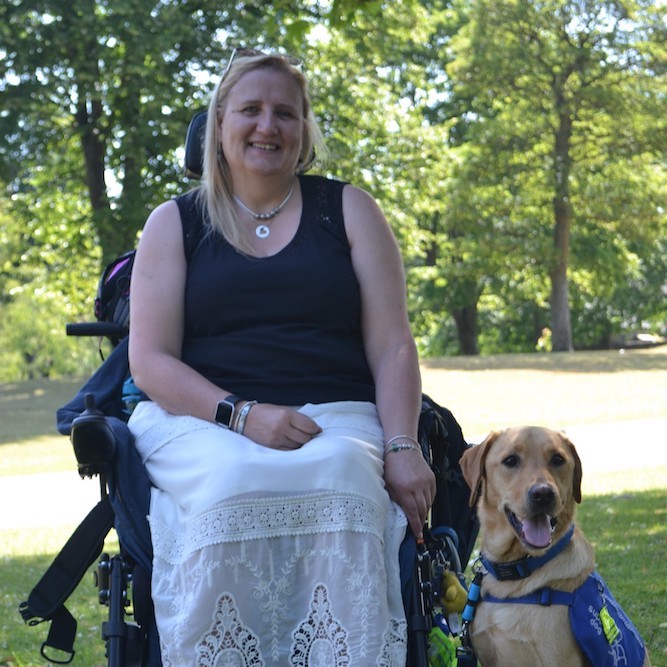
Everything Support Dogs does as a charity is underpinned by their values and dedication to improving not only people’s lives but the lives of dogs.
Working with rescue and rehomed dogs
Support Dogs feels that there are many dogs, without loving homes, but with huge potential to become support dogs. They are champions for dogs who need a second chance and source many dogs from rescue centres, council pounds, or pet dogs with owners that are sadly no longer able to look after them. One in four of their support dogs join them in training from these backgrounds.
As a charity, they do not shy away from dogs that may be classed as difficult and therefore left without a home. From experience, given the correct training, a good home, and care, these dogs can become fantastic assistance dogs.
How they work with rescue centres
Support Dogs have designed and delivered short training sessions to the animal care assistants in rescue centres and rescue charities to help them assess immediately which dogs would be suitable for their training programme.
This means less time in the rescue centres, reducing the stress levels for the dog. The stress of moving into kennels at a rescue centre can have a hugely detrimental effect on some dogs’ mental health. Placing them with a foster family at Support Dogs, as soon as possible, reduces this.
Working with other charities not only helps to decrease the number of dogs in the rescue centres but helps to create a positive image of rescue dogs and increases awareness.

Kevin and Wendy
Kevin is an ex-rescue centre dog whose life has been turned around and is now a fully-qualified support dog.
The yellow Labrador trained with the charity Support Dogs after arriving from Dogs’ Trust. He now works as a disability assistance dog for client Wendy.

Wendy has limited mobility due to disc degeneration in the base of her spine and neck. She also suffers from fibromyalgia and has needed the use of a wheelchair for the past 20 years.
Kevin’s role as a disability assistance dog is to carry out essential everyday tasks around the house, such as helping Wendy dress and undress, pick up dropped items, and press Wendy’s emergency button when required.
Says Wendy: “Kev loves to snuggle up and at night gets under the duvet and lies against my legs, which actually helps with relieving my pain as he keeps me warm! I can’t imagine what my life would be like without him. He’s wonderful.”
For those who want to know more about how they can support the charity and get involved you can visit their website https://www.supportdogs.org.uk/
